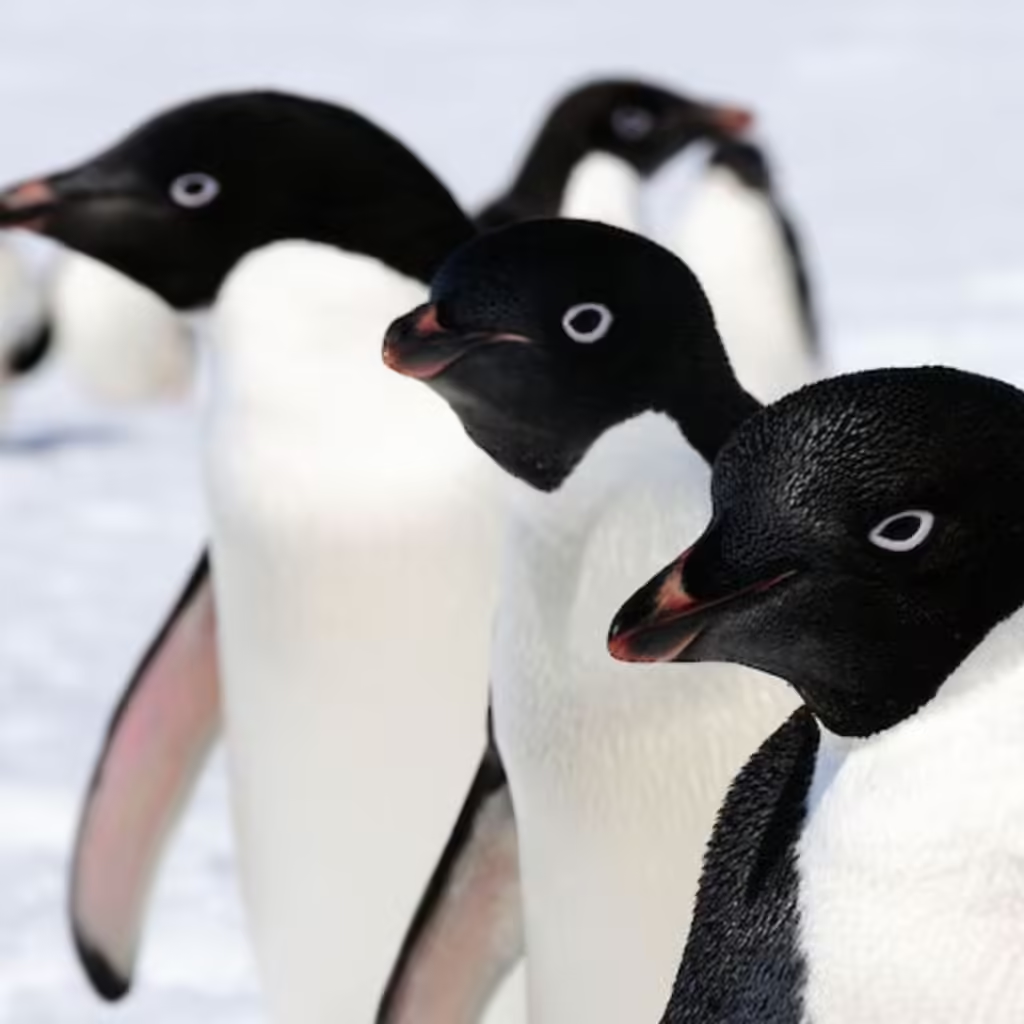
Adélie penguins are some of the most cutest and intelligent birds on planet Earth, captivating the hearts of nature enthusiasts and scientists alike. These small, black-and-white birds live in one of the most extreme environments (for even humans) on our planet, the Antarctic. Despite their harsh living conditions, Adélie penguins are thriving and displaying a variety of interesting behaviors. Here are 10 fun facts about Adélie penguins that will make you appreciate these incredible animals even more.
Also Read: Everything You Need to Know About Adélie Penguins.
1. Unique Black and White Appearance
Adélie penguins are instantly recognizable by their striking black and white plumage. This distinctive coloration is not just for show; it serves a practical purpose. The black back absorbs heat from the sun, helping them stay warm, while the white belly camouflages them from predators in the water below. Their sharp contrast makes them one of the most iconic penguin species.
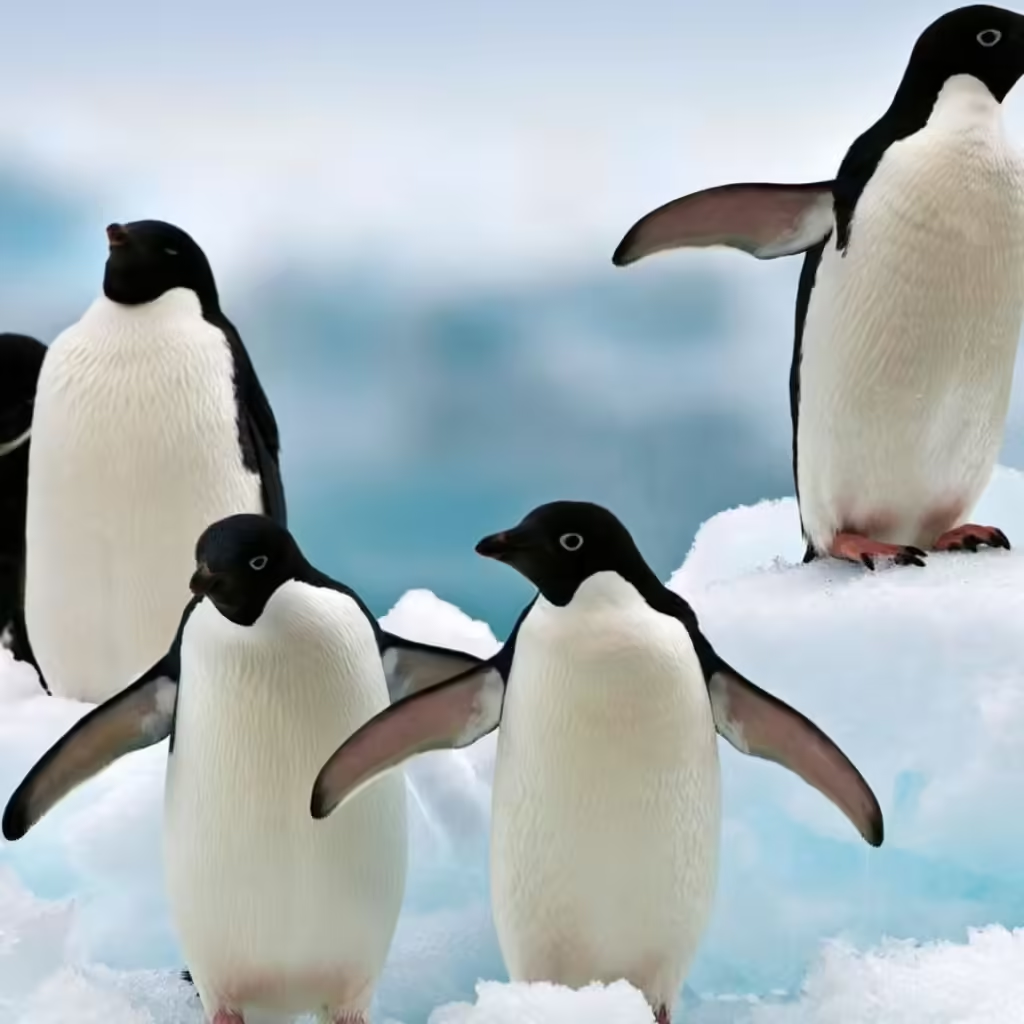
2. Named After a Love Story
The name “Adélie” comes from the wife of French explorer Jules Dumont d’Urville. In 1837, d’Urville named the newly discovered penguin species after his beloved wife, Adéle. This romantic gesture immortalized her name in the annals of natural history, linking it forever with these charming birds.
3. Expert Swimmers and Divers
Adélie penguins are exceptional swimmers. They can dive as deep as 175 meters (574 feet) and swim at speeds of up to 15 km/h (9.3 mph). Their streamlined bodies and strong flippers make them adept at navigating through the icy waters of the Southern Ocean in search of food.
4. Diet Rich in Krill
The primary diet of Adélie penguins consists of krill, small shrimp-like creatures abundant in the Antarctic waters. They also eat fish and squid. The abundance of krill in their habitat plays a crucial role in their survival, providing the necessary nutrients to sustain their energy levels and health.
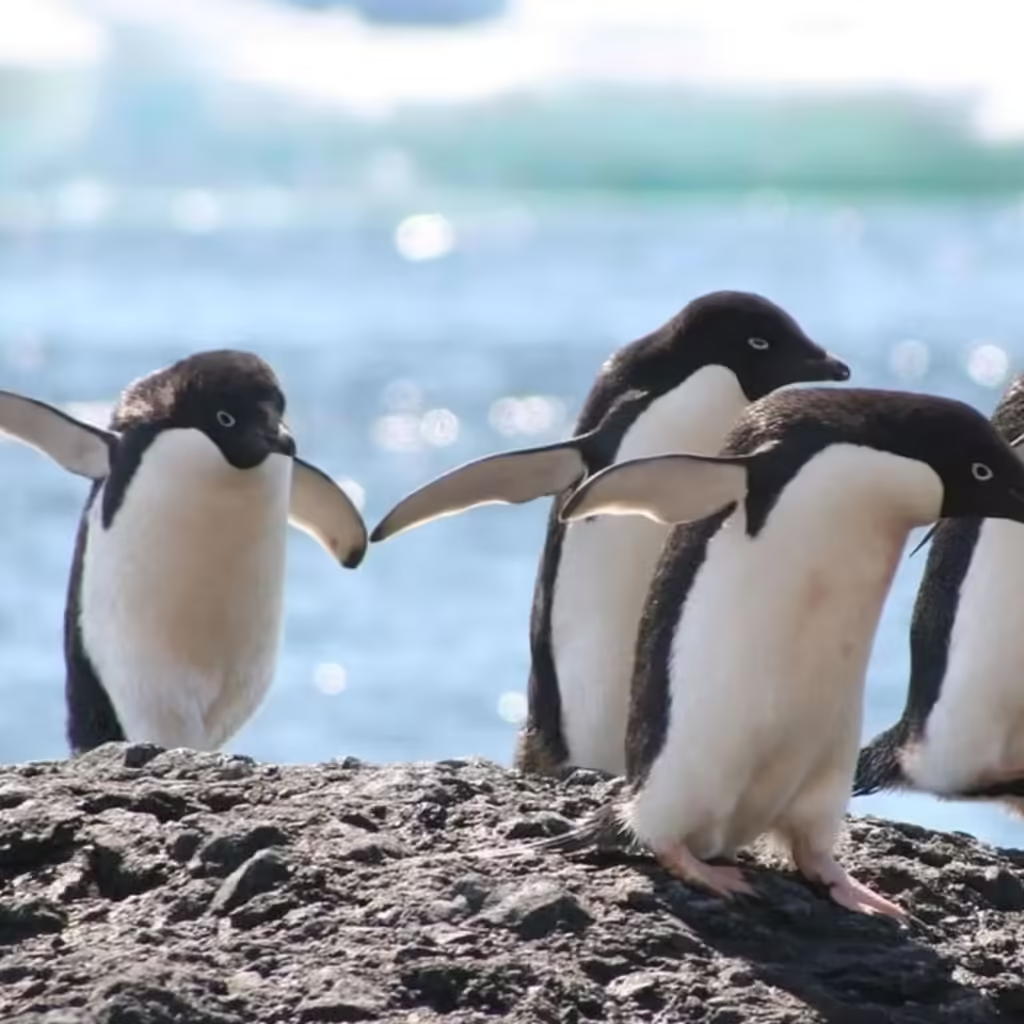
5. Massive Breeding Colonies
Adélie penguins are highly social birds, and they breed in large colonies that can number in the hundreds of thousands. These colonies, called rookeries, are noisy and bustling places, filled with the calls of penguins as they establish territories, build nests, and raise their chicks. The largest known Adélie penguin colony is located on Ross Island and has over half a million birds.
6. Courtship Rituals Involve Stones
Adélie penguins have a unique courtship ritual that involves presenting stones to potential mates. Male penguins gather stones and present them to females as a part of their courtship display. These stones are also used to build nests, providing a stable and elevated place to lay their eggs, protecting them from melting snow and flooding.
Also Read: Why Is My Canary Not Laying Eggs?
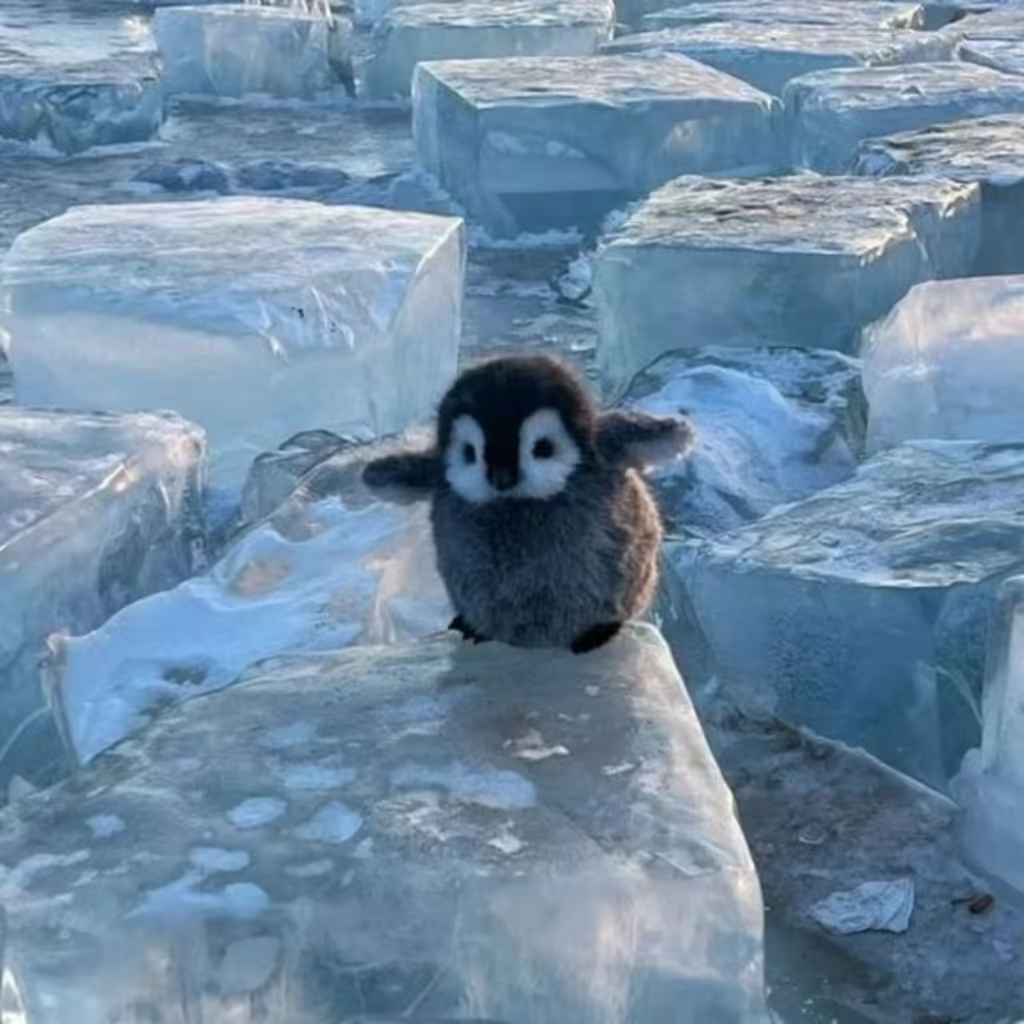
7. Long Migration Journeys
Each year, Adélie penguins embark on long migrations. After the breeding season, they travel to the sea ice to feed and molt. These journeys can cover thousands of kilometers. During the winter, they live on the sea ice, where they feed and store energy for the next breeding season.
8. Remarkable Parenting Skills
Both male and female Adélie penguins share parenting duties. After the female lays the eggs, both parents take turns incubating them, ensuring they are kept warm and safe from predators. Once the chicks hatch, the parents continue to share the responsibility of feeding and protecting their young until they are ready to fledge.
9. Highly Adapted to Cold Environments
Adélie penguins are perfectly adapted to the frigid conditions of Antarctica. They have a layer of blubber under their skin for insulation, and their feathers are specially designed to trap air, providing additional warmth. Their feet are also adapted to the cold, with strong claws that help them grip the ice.

10. Environmental Indicators
Adélie penguins are considered an indicator species. Their population trends can provide valuable insights into the health of the Antarctic ecosystem. Scientists study Adélie penguin populations to monitor the effects of climate change and other environmental factors on the Antarctic region. Changes in their numbers can signal shifts in the ecosystem’s balance.
Conclusion – Facts About Adélie penguins
Adélie penguins are truly remarkable creatures, with unique behaviors and adaptations that allow them to thrive in one of the most inhospitable places on Earth. From their striking appearance to their impressive swimming abilities, these penguins continue to fascinate and inspire us. By learning more about Adélie penguins, we can better appreciate the delicate balance of the Antarctic ecosystem and the importance of protecting these incredible animals and their habitat.
Whether you’re a wildlife enthusiast or simply curious about nature, these 10 fun facts about Adélie penguins provide a glimpse into the extraordinary lives of these resilient birds. Their story is a testament to the wonders of the natural world and the incredible adaptations that make life possible in even the harshest environments.
Also Read: Where to Buy an African Grey Parrot
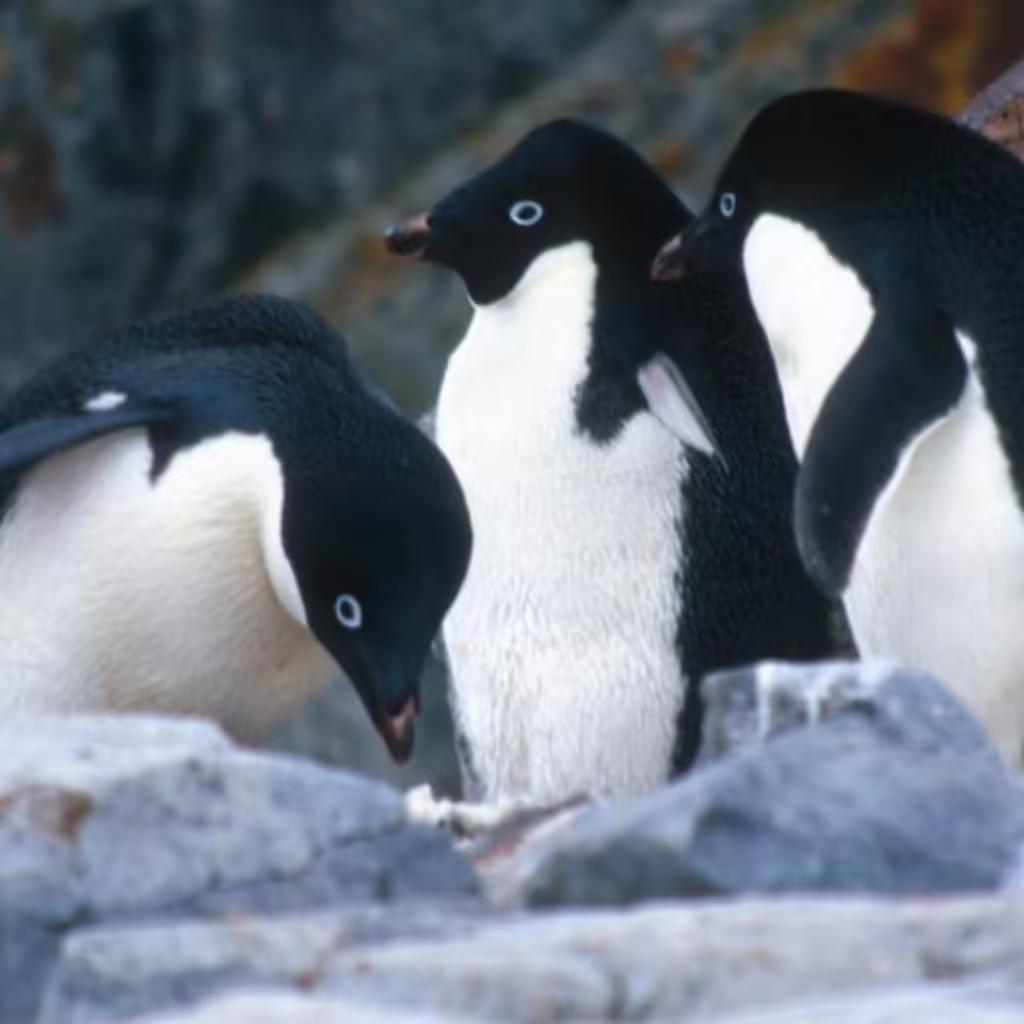
FAQS About Adélie penguins
Are Adélie penguins friendly?
Adélie penguins are generally not aggressive towards humans unless they feel threatened or are protecting their nests/young. However, they are still wild animals and approaching too closely could cause them stress. It’s best to observe them from a distance.
How many Adélie penguins are left?
The global Adélie penguin population is estimated to be over 4 million breeding pairs. Their numbers have declined in some areas due to climate change causing loss of sea ice habitat, but overall they are not considered threatened.
Are penguins safe to touch?
It is not recommended to touch or handle any penguin in the wild. Their feathers are coated in natural oils that keep them warm, and human contact can disrupt this protective layer. Stress from close contact may also impact the penguins’ health and reproduction. For their safety and welfare, observers should keep their distance.
What is penguins biggest enemy?
Penguins have several natural predators that threaten them. Leopard seals are a major enemy, actively hunting adult penguins on land and at sea. Orcas also hunt penguins, particularly juveniles. Large seabirds like skuas and terns will prey on penguin eggs and chicks. Environmental factors like oil spills and changes in prey availability due to climate also negatively impact penguin populations.
Pingback: Everything You Need to Know About Adélie Penguins
Pingback: Everything You Need to Know About Red Factor Canary
Hi team petcaresensei.com,
I was looking at your website and realized that despite having a good design; it was not ranking high on any of the Search Engines (Google, Yahoo & Bing) for most of the keywords related to your business.
We can place your website on Google’s 1st page.
✓ Top ranking on Google search!
✓ Improve website clicks and views!
✓ Increase Your Leads, clients & Revenue!
May I send you a quote & price list?
Well wishes,
K Paul
If you don’t want me to contact you again about this, reply with “unsubscribe”
unsubscribe
Hi team petcaresensei.com,
I was looking at your website and realized that despite having a good design; it was not ranking high on any of the Search Engines (Google, Yahoo & Bing) for most of the keywords related to your business.
We can place your website on Google’s 1st page.
✓ Top ranking on Google search!
✓ Improve website clicks and views!
✓ Increase Your Leads, clients & Revenue!
If you are interested, I will send you our SEO Packages and Cost.
Well wishes,
K Paul
If you don’t want me to contact you again about this, reply with “unsubscribe”
Pingback: 10 Fun Facts About Gentoo Penguins | Pet Care Sensei